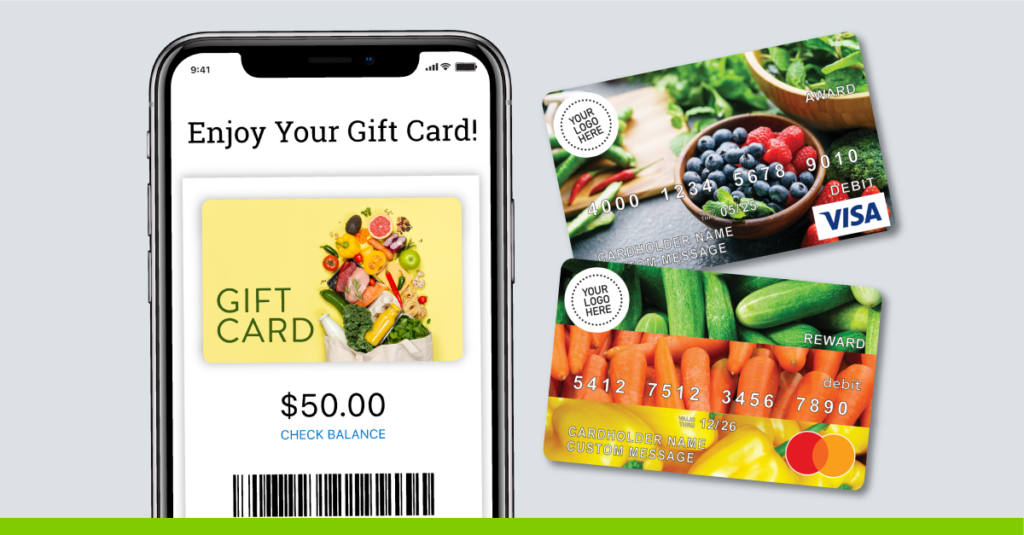
Whether someone is facing a medical issue, grief and loss or financial concerns, this universal truth is clear: we all face challenges at every stage of our lives. Sometimes these transitions push us to seek help from government, schools or mental health services. But, anyone that’s worked in social services knows that frequent client no-shows and lack of participation is a major hurdle. In fact, about 47% of clients who seek mental health treatment never return for their next visit.1 This provides consequences not just for the clients, but for the social workers and therapists who often have long waitlists and a sky high caseload. With so many people in need and so few social service providers, it’s critical that we help clients overcome the economic, mental, social and emotional barriers that can prevent them from fully participating in treatment. Though clients always have a choice, offering meaningful incentives is one way your organization can boost program participation, motivation and demonstrate care and compassion for your clients. Though this list is by no means comprehensive, below we highlight the different ways your social service organization can use incentives so clients can access the care that they need.
1. Fuel up your program with transportation incentives
For many clients who need social services, it’s a catch 22. They need to get to their appointments to receive the very benefits that would help them succeed. But, they don’t have the proper resources to get there. Some hospitals and social services agencies have gotten savvy and found a workaround for this barrier by providing transportation fare, arranging an Uber or other ridesharing service or providing Uber or Lyft gift cards that can be redeemed by the client directly.
2. Health is wealth: reinforce healthy behaviors with healthcare incentives
 Healthcare incentives, specifically vaccine incentives, were made popular by the COVID-19 outbreak. Case in point, BHN partnered with the state of California to give out digital gift cards for the first 2 million vaccine recipients. COVID-19 vaccine incentives for vulnerable populations such as the homeless have been particularly effective in increasing vaccination rates. However, healthcare insurances have long found rewards to be effective for everything from encouraging mammogram screenings to increasing participation in tobacco cessation programs. Aside from traditional gift cards - which are always a fan favorite - you can also offer discounts on medications, reduce members premiums for those that engage in healthy behaviors, or enter participants in a raffle for a grand prize like an all-expenses-paid health retreat. Whichever way you go, offering incentives for preventative screenings and vaccines can make healthy choices more accessible and more readily adopted by members.
Healthcare incentives, specifically vaccine incentives, were made popular by the COVID-19 outbreak. Case in point, BHN partnered with the state of California to give out digital gift cards for the first 2 million vaccine recipients. COVID-19 vaccine incentives for vulnerable populations such as the homeless have been particularly effective in increasing vaccination rates. However, healthcare insurances have long found rewards to be effective for everything from encouraging mammogram screenings to increasing participation in tobacco cessation programs. Aside from traditional gift cards - which are always a fan favorite - you can also offer discounts on medications, reduce members premiums for those that engage in healthy behaviors, or enter participants in a raffle for a grand prize like an all-expenses-paid health retreat. Whichever way you go, offering incentives for preventative screenings and vaccines can make healthy choices more accessible and more readily adopted by members.
3. Increase career readiness with workforce/education rewards
The last few years have brought on a slew of workforce changes, namely new industries, new careers and new skills. Especially for social service clients, job training programs can empower them to feel prepared and show up to interviews poised and ready. To increase attendance of job coaching programs, consider offering and advertising transportation incentives, giving clients resources to free or low-cost business clothes or reimbursing participants for essential supplies like laptops or textbooks. You could also offer rewards for clients that secure a job from the program and refer a friend. Some universities have grown savvy to the effectiveness of incentives and offer rewards for students to keep up their GPA, attend classes, apply for early admission or take a long-distance campus tour.
4. Food is where the heart is: get back to basics with grocery/food rewards
 With increased inflation, we don’t need to remind you that we’ve all been in a pinch when it comes to higher grocery costs. But for low-income clients, offering food related rewards could be the difference from going hungry to enjoying a nutritious meal. You could offer meals on-site or produce and canned goods to attendees. However, some clients may have dietary restrictions. For less prep and more flexibility, consider giving physical or digital grocery store gift cards or prepaid cards that offer either in-store shopping or online delivery. That way, clients can pick out exactly what they want and those with mobility concerns can enjoy greater accessibility via online delivery.
With increased inflation, we don’t need to remind you that we’ve all been in a pinch when it comes to higher grocery costs. But for low-income clients, offering food related rewards could be the difference from going hungry to enjoying a nutritious meal. You could offer meals on-site or produce and canned goods to attendees. However, some clients may have dietary restrictions. For less prep and more flexibility, consider giving physical or digital grocery store gift cards or prepaid cards that offer either in-store shopping or online delivery. That way, clients can pick out exactly what they want and those with mobility concerns can enjoy greater accessibility via online delivery.
5. Strengthen relationships with mental health incentives
Remembering to take regular medications and attend therapy appointments can be especially difficult for clients with serious mental health conditions. According to a study from Priebe, Bremner and Lauber, et. al., offering financial incentives to clients to receive their injections and attend therapy boosted participation rates and improved clinician-client relationships2. Rather than chasing down clients for missed appointments, clinicians saw that clients were eager to attend treatments and felt that the clinic truly valued them. Clients stated that the incentives motivated them to follow a daily routine and socialize with others, which boosted their mental health. Financial rewards could be particularly impactful for lower income clients, who may not immediately see the value in therapy if they’re chasing their next paycheck. Aside from traditional one-on-one therapy, you could offer incentives to group participants. No matter what type of program you run, incentives are a powerful way to increase participation and provide much needed resources. Providers also get the benefit of wasting less time on cancellations and focusing on clients who are committed. Over time, incentives can also increase clients’ intrinsic motivation to adopt healthy habits long after rewards end.
1 Barrett, Chua, Cris-Christop, Gibbons, Casino and Thompson. “Early Withdrawal from Mental Health Treatment: Implications for Psychotherapy Practice.", Psychotherapy (Chic), 2008. https://www.ncbi.nlm.nih.gov/pmc/articles/PMC2762228/#R197 2 Priebe, Bremner, Lauber, et. al. "Financial Incentives to Improve Adherence to Antipsychotic Medication and Nonadherent Patients: a Cluster Randomized Controlled Trial." Southampton (UK): NIHR Journals Library, 2016. https://www.ncbi.nlm.nih.gov/books/NBK385565/








